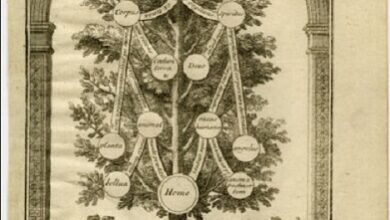What is Feudalism Origin Features Social classes and end
Feudalism
Feudalism was a social, political and economic system that prevailed during the Middle Ages , from the 9th to the 15th century. It was characterized by the system of vassalage and is considered by many as the “Dark Age”, due to bloody wars , epidemics and little scientific progress.
One of the main characteristics of the feudal system was the decentralization of power , exercised through nobles organized into fiefs, who had relative independence from the monarch, but were subject to their king with close ties of loyalty . The nobles inherited their titles, which were passed from generation to generation.
What was the fief?
The word feudalism comes from “fief”, a name given to the basic organization of the time. The fief was a contract between two people: the feudal lord and the vassal.
In this “pact” mutual relations were established, the vassal received a land to live on and military protection in exchange for a relationship of dependency with the feudal lord. The vassal had to administer the land and take up arms in defense of his lord if necessary. In addition, he was to pay tribute from his harvest or production from him.
Within this structure there were also peasants, who were those who worked the land and were under the total domination of the feudal lord, so they were not considered free men.
During feudal times, the land was a guarantor of money and, therefore, the most precious possession. Economic activities were restricted and consisted mainly of agriculture and craft production.
Origin of feudalism
Feudalism arose, first of all, with the decline of the Roman Empire , which, by losing large tracts of land, began to lose influence over the peoples.
The insecurity resulting from the constant barbarian invasions led to the decline of the cities and the formation of the feudal structure , in which vassals placed themselves at the disposal of a feudal lord and received protection behind the walls of the castle.
The entire social and moral order of the time was explained under the figure of God, since the king had lost political power and was no more than the divine representative on earth.
Given the incompetence of the monarchs to deal with the invasions and the subsequent political and social crisis, power passed into the hands of the feudal lords , who became the maximum social bosses. They had to regulate order and maintain peace within its structure, they imparted justice , collected taxes and provided protection to the population from the castle, which was erected as a new symbol of power.
Features
Among the main characteristics of feudalism are:
- The emergence of the vassalage relationship between a feudal lord and his vassals.
- A society divided into three different social classes : the nobility, the clergy and the Third Estate or the common estate.
- The construction of walled castles .
- An economy based on agriculture and livestock .
- Frequent wars over disputed territories.
- The payment of taxes .
- The Catholic Church as a great source of power.
- The decentralization of political power.
Social classes of feudalism
During feudalism, social classes were static, that is, it was a closed social system in which there was no social mobility , but rather society was divided into estates. Inside this structure, which was pyramidal, were:
- The royalty. Made up of royalty and feudal lords, they held most of the land and political power. This stratum used to be accessed by lineage.
- The clergy. Formed by religious who represented the Church and fulfilled ecclesiastical, political, educational and/or social roles, and had privileges.
- The Third Estate. Formed by the majority of the population , citizens who were not nobles or clergy, had no privileges and paid taxes. It was a very varied group made up of peasants, merchants and bourgeois.
end of feudalism
The historical process that marked the end of feudalism does not have an exact date , it developed unevenly in different parts of Europe from the fourteenth century.
There are several causes that led to its end, among which are:
- Rise of the bourgeoisie . Many historians agree that trips to the East for commercial purposes generated a new social class: the bourgeoisie, made up of free men, but not nobles.
- Population decline. The population decreased as a result of plagues and wars, which led to a decrease in the available workforce .
- New forms of economic development . The saturation of the lands led to the search for new forms of economic expansion among which the industry stood out , its emergence marked the passage from the Middle Ages to the Modern one .
- Dissatisfaction of the peasants. The pressure and overexploitation of labor by the feudal lords, the inefficiency of the agricultural system of the time and the low population generated a decrease in the available labor force.
- Growth of cities. The cities received people expelled or who did not want to belong to the feudal system.


